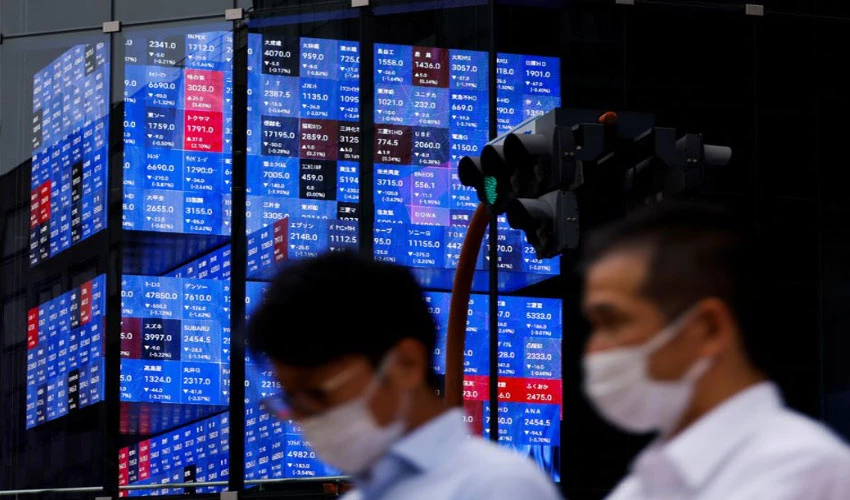Shares, bond yields fall as inflation fears swirl

WASHINGTON/LONDON (Reuters) - Shares and bond yields fell on Monday as investors braced for a US inflation report that could force another super-sized hike in interest rates, as policymakers worldwide battle inflation while being wary of the threat of a recession.
The pan-European STOXX 600 index (.STOXX) lost 0.41% and MSCI's gauge of stocks across the globe (.MIWD00000PUS) shed 0.49%.
Meanwhile, US stock indexes were headed for a lower open on Monday as investors braced for the start of the earnings season, which could see profits come under pressure at a time of growing fears of an economic downturn due to aggressive interest rate hikes.
The euro hovered just above parity versus the dollar as the biggest single pipeline carrying Russian gas to Germany entered annual maintenance, with flows expected to stop for 10 days.
Euro zone bond yields fell while long-term inflation expectations dropped below 2% as recession fears deepened after warnings about the possible cut in Russian gas supplies.
Germany's 10-year government bond yield, the euro zone benchmark, fell 5 bps to 1.296%. It hit a 5-week low at 1.072% last week.
Underlining the global nature of the inflation challenge, central banks in Canada and New Zealand are expected to tighten policy further this week.
While Wall Street did eke out some gains last week, the market mood will be tested by earnings from JPMorgan and Morgan Stanley on Thursday, with Citigroup and Wells Fargo the day after.
Another hurdle will be Wednesday's US consumer price report, in which markets see headline inflation accelerating further to 8.8% but a slight slowdown in the core measure to 5.8%.
An early reading on consumer inflation expectations this week will also have the close attention of the Fed.
"Unexpected weakness in these releases will be required to dislodge expectations for a 75 bps July 27 Fed rate rise, which lifted from about 71 bps to 74 bps post the payrolls report," said Ray Attrill, head of FX strategy at NAB.
MSCI's broadest index of Asia-Pacific shares outside Japan (.MIAPJ0000PUS) slipped 1.8%, while Chinese blue chips (.CSI300) lost 1.9% after Shanghai discovered a COVID-19 case involving a new subvariant, Omicron BA.5.2.1.
PARITY PARTY
A hawkish Fed, combined with fears of recession, particularly in Europe, has kept the dollar up at 20-year highs against a basket of competitors . Meanwhile, the dollar index rose 0.953%, with the euro down 1.2% to $1.0061۔
The Japanese yen weakened 1.13% versus the greenback at 137.64 per dollar, while sterling was last trading at $1.1898, down 1.07% on the day.
Japan's conservative coalition government was projected to have increased its majority in upper house elections on Sunday, two days after the assassination of former prime minister Shinzo Abe.
The euro continued to struggle at $1.0122 , having shed 2.4% last week to hit a two-decade low and major retracement target at $1.0072.
"With little economic relief on the horizon for Europe, and US inflation data likely to mark a new high for the year and keep the Fed hiking aggressively, we think the risks remain skewed in favour of the greenback," said Jonas Goltermann, a senior markets economist at Capital Economics.
"Indeed, we think the EUR/USD rate will break through parity before long, and may well trade some way through that level."
Rising interest rates and a strong dollar have been a headache for non-yielding gold, which was ailing at $1,739 an ounce , having fallen for four weeks in a row.
Oil prices also lost around 4% last week as worries about demand offset supply constraints.
Data from China due on Friday are likely to confirm the world's second largest economy contracted sharply in the second quarter amid coronavirus lockdowns.
US crude recently fell 1.88% to $102.82 per barrel and Brent was at $105.27, down 1.64% on the day.







